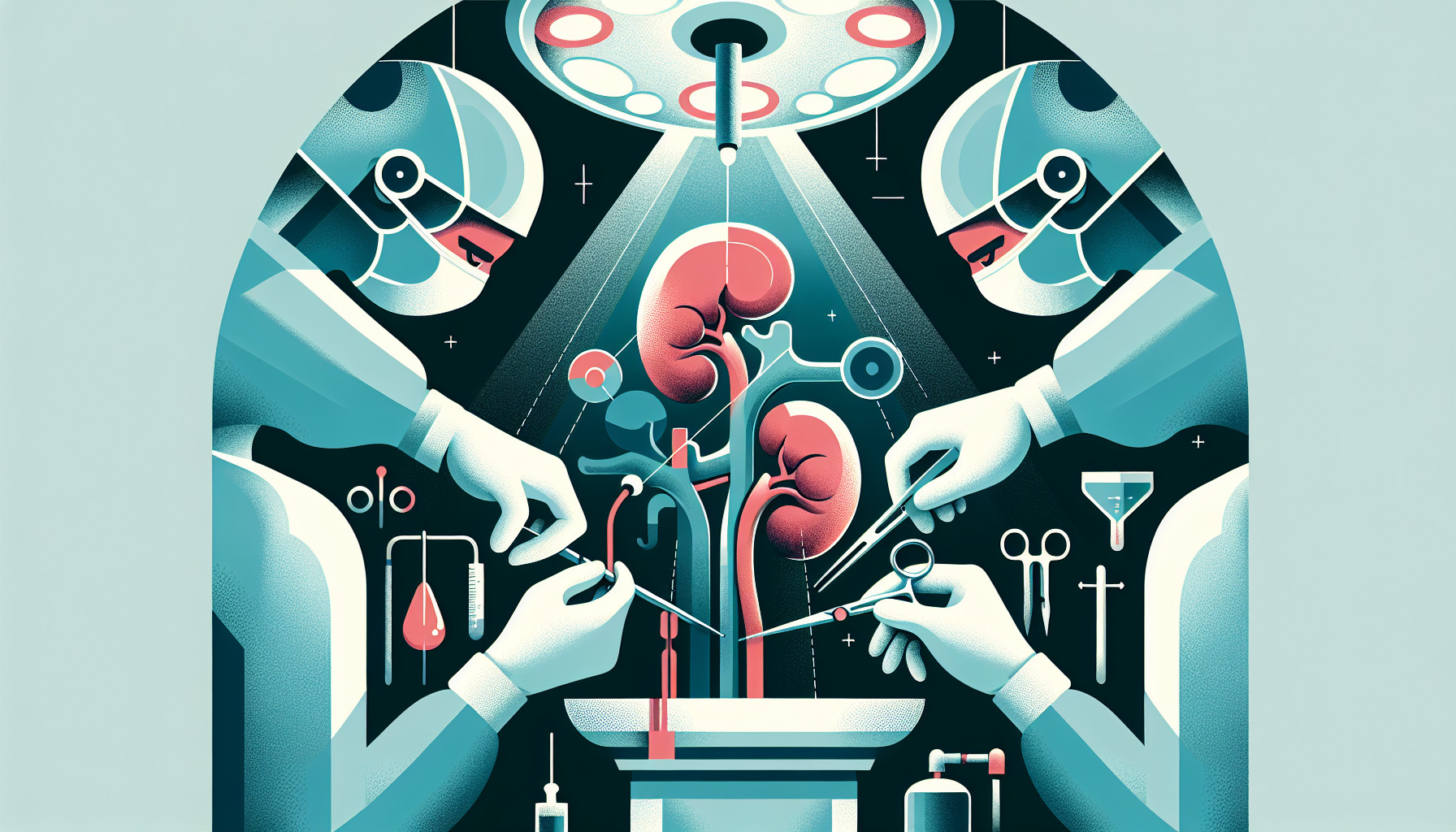Our Summary
This research paper is about a study looking into readmission rates and complications after a specific type of kidney removal surgery (hand-assisted laparoscopic donor nephrectomy, or HALDN). The researchers analyzed data from patients who had this surgery between August 2007 and June 2015.
They found that about 13% of the patients were readmitted to the hospital within 30 days of their surgery. Some of these readmissions were due to nondescript abdominal pain and increased inflammatory markers in the body, with no clear source of infection.
Interestingly, the reasons for readmission were not always related to the kidney removal surgery - in fact, about 24% of readmissions and 19% of the surgeries performed after readmission were for issues not related to the initial kidney removal.
In conclusion, the study found that there was a relatively high rate of readmission after this type of surgery. Because of this, the researchers suggest that living donors should be fully informed about the risks, including the possibility of complications that are not related to the kidney removal surgery.
FAQs
- What was the rate of patient readmission within 30 days after undergoing hand-assisted laparoscopic donor nephrectomy (HALDN)?
- What were some of the reasons cited for patient readmissions after the HALDN surgery?
- Based on the study, what are the researchers’ recommendations regarding informing patients about the risks of HALDN surgery?
Doctor’s Tip
A helpful tip a doctor might tell a patient about laparoscopic nephrectomy is to closely follow post-operative instructions to reduce the risk of complications and readmission. This may include taking prescribed medications, avoiding strenuous activities, and attending follow-up appointments as scheduled. Additionally, it is important for patients to promptly report any unusual symptoms or concerns to their healthcare provider.
Suitable For
Typically, patients who are recommended for laparoscopic nephrectomy are those who require the removal of a kidney due to conditions such as kidney cancer, kidney stones, polycystic kidney disease, or other kidney disorders. In the case of living kidney donors, they may also undergo laparoscopic nephrectomy to donate a kidney to a recipient in need.
It is important for patients to be fully informed about the risks and potential complications associated with laparoscopic nephrectomy, including the possibility of readmission to the hospital after surgery. Additionally, patients should be evaluated by their healthcare provider to determine if they are suitable candidates for this type of surgery based on their overall health and medical history.
Timeline
Before laparoscopic nephrectomy:
- Patient undergoes pre-operative testing and evaluation to determine if they are a suitable candidate for the surgery.
- Patient meets with their surgeon to discuss the procedure, potential risks, and expected outcomes.
- Patient may need to make lifestyle changes or take medications leading up to the surgery.
- Surgery is scheduled and patient receives instructions on fasting and other pre-operative preparations.
During laparoscopic nephrectomy:
- Patient is put under general anesthesia.
- Surgeon makes small incisions in the abdomen and inserts a laparoscope and other surgical instruments.
- Kidney is carefully detached and removed through one of the small incisions.
- Incisions are closed and patient is monitored in the recovery room before being moved to a hospital room.
After laparoscopic nephrectomy:
- Patient may experience pain and discomfort at the incision sites.
- Patient is monitored for any signs of infection or other complications.
- Patient is instructed on how to care for their incisions and manage any pain.
- Patient may need to stay in the hospital for a few days before being discharged.
- Follow-up appointments are scheduled to monitor recovery and check for any long-term complications.
What to Ask Your Doctor
What are the potential risks and complications associated with laparoscopic nephrectomy?
How long is the recovery period after surgery and what can I expect in terms of pain management and follow-up care?
Are there any specific lifestyle changes or restrictions I should adhere to post-surgery?
What is the success rate of laparoscopic nephrectomy in terms of removing the kidney and preventing further health issues?
How experienced are you in performing laparoscopic nephrectomy and what is your success rate?
Are there any alternative treatment options to consider before undergoing laparoscopic nephrectomy?
What is the likelihood of needing a readmission to the hospital after laparoscopic nephrectomy and what are the most common reasons for readmission?
How will my kidney function be affected after the surgery and what long-term implications should I be aware of?
Are there any specific factors about my health or medical history that could impact the success of laparoscopic nephrectomy?
What is the overall recovery process like and when can I expect to return to normal activities?
Reference
Authors: Ulyett S, Paraskeva P, Stacey S, Stell D, Akoh J, Barwell J, Aroori S. Journal: J Laparoendosc Adv Surg Tech A. 2019 Nov;29(11):1427-1430. doi: 10.1089/lap.2019.0144. Epub 2019 Oct 17. PMID: 31621492
